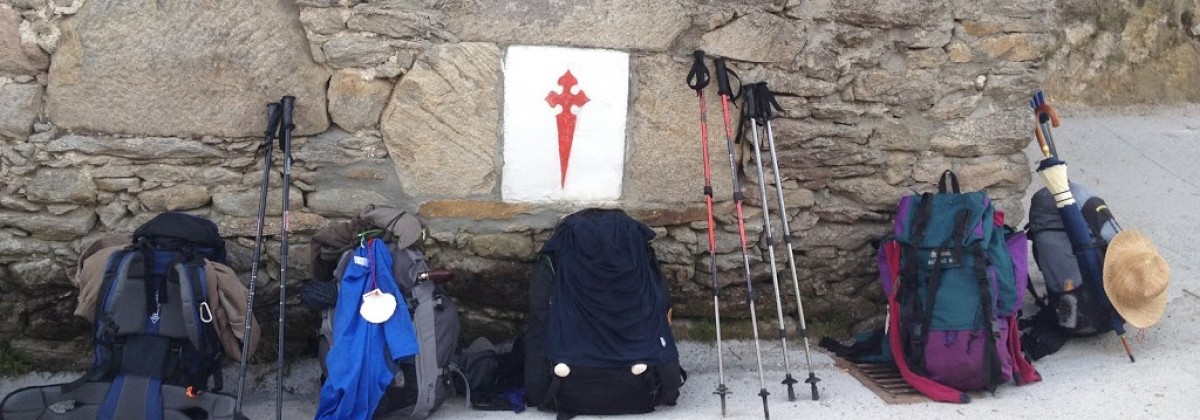as I mentioned in an earlier Camino post, the first guide for peregrinos on the Camino was the Codex Calixtinus, an illuminated manuscript from the 12th century, originally attributed to Pope Callixtus II from whom the text takes its name. in reality, it was written by many authors over several years in the 1130s and the product was compiled by a French scholar named Aymeric Picaud. moreover, it appears that in order to give the manuscript some weight, the authors prefaced it with a letter purportedly signed by Callixtus (who had been dead for 15 years by the time they completed the text).
the earliest edition of the codex, dating from 1150, was held in the archives of the Cathedral in Santiago, but was lost and forgotten until the 1880s; copies were made, however, and distributed to Barcelona, Rome, Jerusalem, and the Cluny Abbey. the Santiago version includes five volumes (one of which was ripped out, either by accident or design, in 1609 and later restored): one of liturgies, one of reported miracles, one on the transfer of Santiago’s body, one on the legends of Charlemagne and Roland (the one removed in the 17th century), and one a “guide for the traveler” with handy tips on the route, sights to see, art to admire, and local customs.
I hadn’t realized that this masterpiece of Camino history lay at the center of a recent theft scandal. in July 2011, the Codex disappeared from the Cathedral archives, where it was kept in a reinforced glass case to which a limited number of people had access. some speculated the theft might have stemmed from personal or professional grievances, or may have been an attempt to illuminate comparatively lax security in the Cathedral. (at the time of the theft, which went unnoticed for several days, it turned out security cameras were not turned on and the case containing the manuscript may have been unlocked.) almost a year to the day on which the manuscript disappeared, Spanish police arrested a former worker (along with his wife, son, and son’s girlfriend) who, at the time the theft, was suing the Cathedral for wrongful termination after 25 years of employment. after searching his property, eight copies of the Codex were recovered along with a host of other documents of value from the Cathedral archives. oh, and 1.2 million euros in cash.
